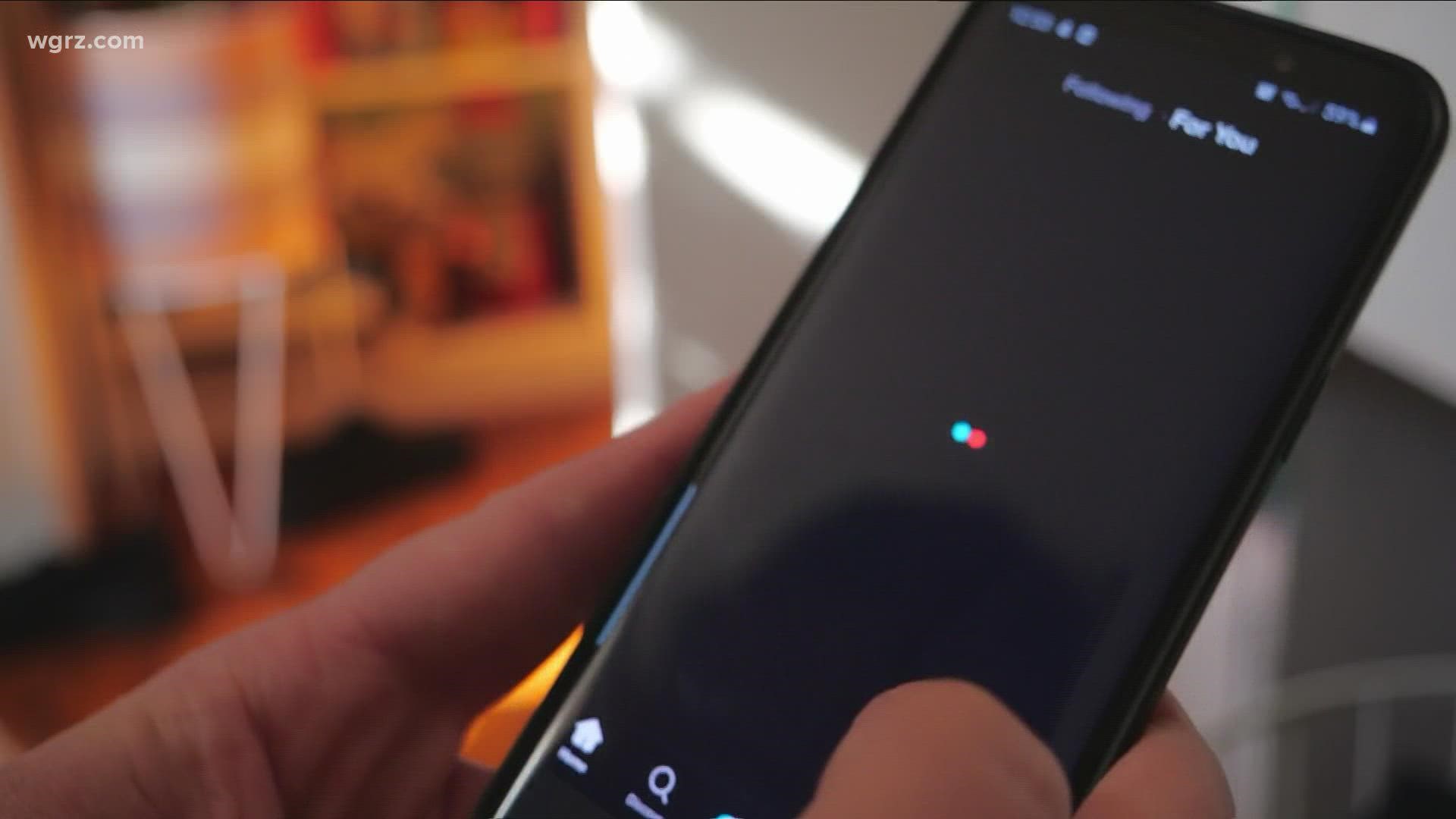BUFFALO, N.Y. — TikTok has been around for about five years and now has more than a billion active global users.
Nearly a third of them in the United States are under the age of 19.
"It can be a perfectly innocent endeavor, or it can definitely impact negatively on a young person's mental health. So, it can go either way," says licensed psychologist Dr. Amy Beth Taublieb.
For the world's most downloaded app, licensed psychologist Dr. Amy Beth Taublieb says its impact on the mental health of teens depends on three main factors: how much time you spend on the app, what you're watching on it, and your baseline psychological and emotional state.
"So if they, for whatever reason, or reasons, end up watching certain things on TikTok, maybe less psychologically validating or health things on TikTok, that could clearly have an impact on their sense of self on their self esteem," said Dr. Amy Beth Taublieb.
2 On Your Side asked TikTok for an interview. A spokesperson declined, but shared info with us about how TikTok has safety measures in place for teens.
They told us the app is intended only for people 13 and up, but there is a TikTok experience available for people under 13 that is "view-only." There is also a Family Pairing option that lets a parent or guardian link their TikTok account to their teen's so they can manage content and privacy settings.
But remember, once something is posted for anyone to see online, it's out there.
"A lot of applications allow users to reshare videos and reshare photos, so it's not necessarily the organization doing it. So just being cognizant that if I post something, someone else may share it," says attorney Allie Prout.
Allie Prout is an attorney who specializes in technology law and represents companies of all sizes.
Prout says when it comes to data privacy and data security, it's important for families to review a company's privacy policy so you know how your personal data might be collected and shared.
"Having appropriate passwords in place, think before you click, if you're not expecting to get an instant message, or an email, or something along those lines, check to see if it's legitimate. If they're asking you for personal information, that's usually a good sign that if you don't know the sender, it might not be real," says Prout.
Dr. Taublieb advises parents to use parental controls and talk with your child about how they are using the app.
"On a very real level, I don't feel it's TikTok's responsibility. It is really more the parent's responsibility, and in terms of is that enough or is that not enough, it so, so much depends on the young person," says Dr. Taublieb.
And while research into the impact TikTok is having on mental health is just starting, Dr. Taublieb says we may never have a definitive answer.
"I don't know how we would ever be able to parcel out the effects of TikTok versus the effects of just living life," says Dr. Taublieb.
"I think as a society, we have to be very careful not to single out TikTok as the source of all evil. Does TikTok have some negative impact on some kids? Absolutely. Does TikTok serve a positive function for other kids? Absolutely. But to generalize and either demonize TikTok or to make it the most wonderful thing in the world, and there's a temptation to do it, because as I said, this is a tough time in life developmentally, we really want to try and avoid that," says Dr. Taublieb.
TikTok also has a guide for parents.

